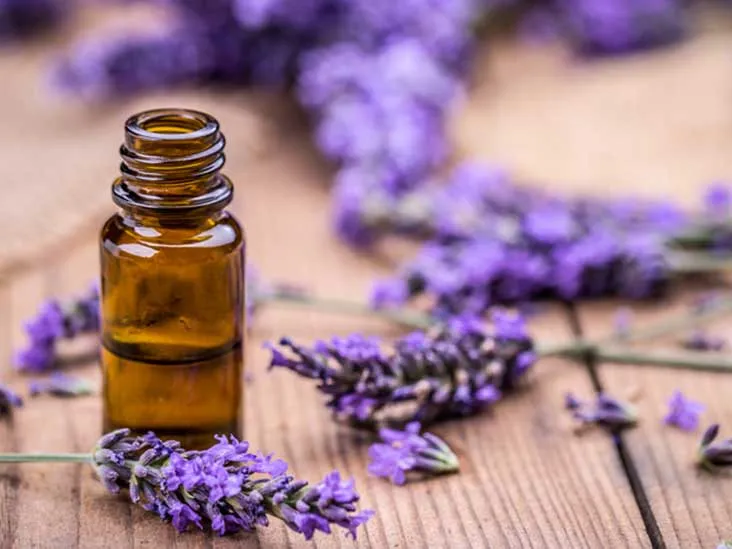
CAN NATURAL OILS HELP WITH HAIR GROWTH
Introduction
Almost every guy faces the problem of hair loss at some point in their life. Sure, there are many solutions that claim that they can treat hair loss, but the reality is quite different. However, one of the most effective ways to deal with hair loss is essential oils.
Essential oils are concentrated plant extracts that contain the plant’s characteristic scent and flavor. They’re also thought to have potential health benefits, including the ability to promote hair growth.
A number of studies have shown that essential oils can help to stimulate hair growth in both men and women. Another study found that a mixture of essential oils was able to increase hair growth in people with thinning hair. While more research is needed, these studies suggest that essential oils may be a promising treatment for hair loss.
The following guide will give you an idea about the best natural oils that you can use for hair growth. You will also know the latest developments on the effectiveness of natural oils and whether you should use them if you experience hair loss or not.
Will natural oils help with hair growth?
Natural oils have long been used for their pleasant smells and purported health benefits. Today, many people use diffusers to disperse these oils throughout their homes. While diffusing essential oils will not cure serious health conditions, there is some evidence that they may offer certain benefits, such as easing a headache or helping you to relax. In addition to their potential health benefits, essential oils can also make your home smell great. When diffused in the right quantities, they can create a refreshing and inviting atmosphere.
When it comes to stimulating hair growth, there is evidence that rosemary and tea tree oil may have hair-related benefits. These benefits are seen in a few studies that were conducted on a small scale. The studies looked at the effects of rosemary and tea tree oil on hair loss, hair follicle activity, and sebum production. Rosemary was found to be effective in stimulating hair growth in rats, while tea tree oil was found to be effective in reducing hair loss and promoting hair growth in humans. However, more research is needed to confirm these findings. Currently, there is not enough evidence to recommend natural oils as treatments for hair loss.
Relation between hair growth and natural oils
Despite the fact that many people swear by natural oils as hair growth treatments, the evidence for their efficacy is limited. While some anecdotal evidence suggests that natural oils may help to boost hair growth, more research is needed to confirm these claims. In the meantime, people who are looking for effective hair loss treatments should consult with a doctor or dermatologist.
Most of the studies on oil-based hair loss treatments only involve a few human participants. So, when someone says that a natural oil has worked in the study and is able to produce thicker hair and faster hair growth, it cannot be said for sure that it will 100% work on humans.
While natural oils have been used for centuries in various cultures to promote hair growth, their efficacy has only been studied relatively recently. While the findings are interesting, they should be treated as preliminary until more research is conducted. In the meantime, there’s no harm in using these oils on your hair, but don’t expect miracles. Now that you know about this disclaimer, let’s take a look at some of the natural oils that come with the backing of scientific research.
Rosemary Essential Oil
Rosemary essential oil is a popular choice for hair growth due to its stimulating properties. When applied to the scalp, it can help increase blood flow and promote cell regeneration. This can in turn stimulate hair follicles and encourage growth. Rosemary essential oil is also thought to be beneficial for dry scalp conditions, such as dandruff. By improving circulation and keeping the scalp healthy, it can reduce the flaking and itching associated with dandruff. In addition, rosemary essential oil has antioxidant and anti-inflammatory properties which can protect the hair from damage.
Rosemary essential oil has been used for centuries to promote hair growth. In fact, a study published in the SKINmed journal said that it provides a similar effect to the hair loss medication called minoxidil. The study also indicated that rosemary essential oil can help to increase follicle diameter, resulting in thicker, fuller hair.
In the study, rosemary oil solution was applied to the participants with androgenetic alopecia. After 6 months, it was observed that those who applied 2% minoxidil had similar hair growth as rosemary oil solution.
Another study published in the Archives of Dermatology found that rosemary oil may help to treat alopecia areata, a condition characterized by patchy hair loss. In the study, patients with alopecia areata were treated with a mixture of rosemary oil and carrier oils such as jojoba oil or almond oil. The mixture was applied to the scalp twice daily for six weeks. The study found that many patients treated with the rosemary oil mixture experienced an improvement in their hair loss.
While the exact mechanism by which rosemary oil stimulates hair growth is not known, it is thought to work by increasing circulation to the scalp and by providing nutrients that support healthy hair follicles. As a result, rosemary oil may be an effective natural treatment for alopecia areata.
Tea Tree Essential Oil

Tea tree essential oil is obtained from the leaves of the Australian tea tree, Melaleuca alternifolia. The oil has a wide range of medicinal uses and has been used in traditional Aboriginal medicine for centuries. Today, tea tree oil is commonly used as a natural remedy for skin conditions such as acne and athlete’s foot. In many cases, it is also used to treat hair loss.
If you’re looking for an effective anti-dandruff shampoo, you may want to consider one that contains tea tree oil. Tea tree oil is thought to be effective against dandruff because it has antifungal and antibacterial properties.
In a study, researchers found that a microemulsion consisting of minoxidil, diclofenac, and tea tree oil was more effective than minoxidil alone in promoting hair growth. The study participants who used the tea tree oil shampoo also reported a decrease in scalp itchiness. Tea tree oil is thought to be effective against dandruff because it has antifungal and antibacterial properties
Other Natural Oils That Promote Hair Growth
Some of the other natural oils that promote hair growth are as follows:
● Peppermint oil – Peppermint oil has been shown to be helpful in promoting hair growth. In a 2014 study, it was found that peppermint oil promoted hair growth in mice. Therefore, it is thought that the oil may help to improve blood circulation to the scalp and nourish the hair follicles. Peppermint oil is also believed to have antimicrobial properties, which may help to keep the scalp healthy and free from infections that can damage hair follicles.
● Lavender oil – Lavender oil is perhaps best known for its calming, soothing scent. However, this versatile oil can also be used to promote hair growth. Lavender oil is thought to produce new hair follicles and may help to treat conditions like alopecia areata.
● Jojoba oil – A study published in Food and Chemical Toxicity said that jojoba oil was effective at speeding up the hair growth process is mice. However, there is no evidence that shows the same effect in humans.
● Cedarwood oil – Cedarwood oil was used as a hair growth treatment in 1998. But there has not been any concrete evidence that supports the fact that this oil is helpful for hair growth.
● Argan oil – This oil is often used as a shampoo ingredient as it contains fatty acid that keeps your scalp oily and prevents itchiness. Like cedarwood oil, there is still no evidence on whether argan oil is effective for hair growth or not.
● Castor oil – Castor oil also prevents your scalp from becoming dry and itchy. it has been cited that itchy scalp and hair loss are related. It prevents hair breakage, and as a result, doesn’t allow your hair to fall prematurely.
● Black seed oil – There are a few studies that indicate the efficacy of black seed oil for hair growth but they don’t have concrete pieces of evidence. One study found that black seed oil could increase hair growth in rats, but it is not clear if the same would be true for humans. Another study looked at the effect of black seed oil on human hair follicles and found that it might help to stimulate hair growth. However, this study only looked at a small number of people, so more research is needed to confirm these findings.
While essential oils have been heralded as a natural remedy for a variety of ailments, there is currently no high-quality evidence that shows that clary sage oil, lemongrass oil, ylang-ylang oil, or thyme oil can stop hair loss or stimulate hair growth.
If you experience hair loss or have problems with your scalp, it would be best to talk to a dermatologist before you start using any natural oils.
Medication For Hair Growth
Before and after images shared by customers can be a useful marketing tool for hair growth products. The before images provide potential customers with a visual representation of the problem that the product can solve. The after images demonstrate the results that are possible with using the product. When used together, these images can give potential customers a clear idea of what to expect from using the hair growth product. However, it is always wise to stick to what the dermatologist says. In most cases, dermatologists provide science-based hair loss treatments. Some of them are as follows:
1. Minoxidil
Minoxidil was originally developed as a treatment for high blood pressure. It was found to be an effective vasodilator, which means that it helps to widen blood vessels. This action is thought to be the reason why minoxidil is also effective in treating hair loss. When applied topically, minoxidil is thought to stimulate blood flow to the hair follicles, which in turn promotes hair growth. In addition, minoxidil is thought to increase the diameter of existing hair shafts, resulting in thicker and fuller-looking hair. Minoxidil is available over-the-counter in a 5% solution for men and a 2% solution for women. It is typically used twice daily for four months or longer in order to see results.
2. Finasteride
Finasteride is a medication that is used to treat hair loss in men. It is a type of anti-androgen, which means it works by blocking the effects of testosterone. Testosterone is a hormone that is responsible for many of the male characteristics, such as muscle growth and body hair. It also plays a role in hair loss, by causing the hair follicles to miniaturize. This process eventually leads to baldness. Finasteride works by inhibiting the production of testosterone, which helps to prevent hair loss. In addition, it has been shown to reverse the miniaturization process, which can help to regrow lost hair.
Hair Replacement options
Non-surgical hair replacement, such as hair systems and man weave are becoming more and more popular and a viable option for those with issues with hair growth
Will Natural Oils Help With Hair Growth?
Natural oils have long been used for their pleasant smells and purported health benefits. Today, many people use diffusers to disperse these oils throughout their homes. While diffusing essential oils will not cure serious health conditions, there is some evidence that they may offer certain benefits, such as easing a headache or helping you to relax. In addition to their potential health benefits, essential oils can also make your home smell great. When diffused in the right quantities, they can create a refreshing and inviting atmosphere.
When it comes to stimulating hair growth, there is evidence that rosemary and tea tree oil may have hair-related benefits. These benefits are seen in a few studies that were conducted on a small scale. The studies looked at the effects of rosemary and tea tree oil on hair loss, hair follicle activity, and sebum production. Rosemary was found to be effective in stimulating hair growth in rats, while tea tree oil was found to be effective in reducing hair loss and promoting hair growth in humans. However, more research is needed to confirm these findings. Currently, there is not enough evidence to recommend natural oils as treatments for hair loss.



